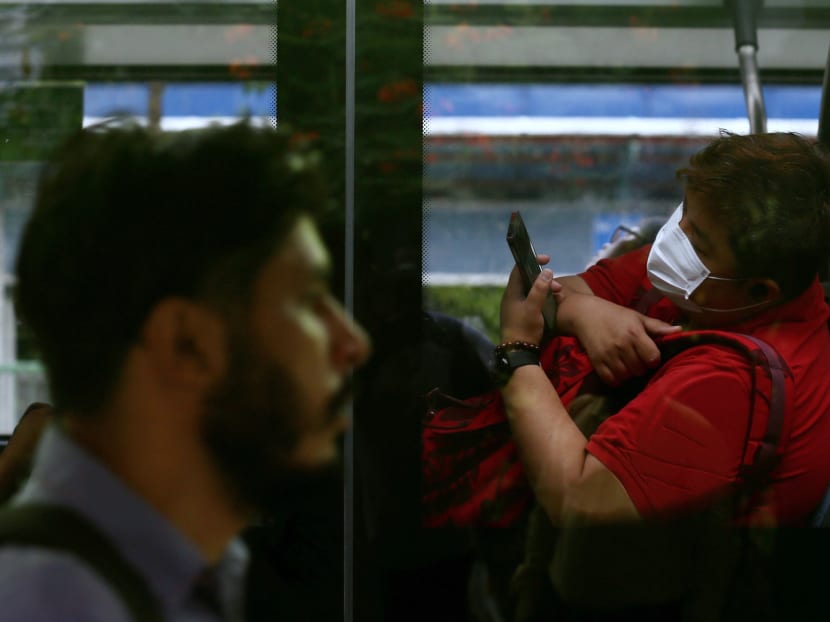When fake news, censorship make it harder to tackle a coronavirus
It’s hard not to make a case against fake news when the latest rumours involve people turning into zombies if they were infected by the novel coronavirus sweeping across the globe right now.

The way countries such as Singapore have sprung into action tells us that information needs to travel just as fast as a contagion to make a difference, says the author.
It’s hard not to make a case against fake news when the latest rumours involve people turning into zombies if they were infected by the novel coronavirus sweeping across the globe right now.
Just this week, the Malaysian authorities had to come forward to tell social media users to stop making a link between the deadly disease and the walking dead.
In Singapore, too, rumours of a train station being shut down because of contagion from the virus had to be quashed by the local authorities as well. Doing so takes away valuable time from tackling the virus.
Already, the novel coronavirus, which was first detected in the Chinese city of Wuhan, has killed almost 500 people in China, more than the number of Chinese nationals who died of the Severe Acute Respiratory Syndrome (Sars) back in 2003.
That this epidemic is spreading globally — to more than 20 regions — is alarming enough. There are also the big unknowns — where it came from, how it spreads and what methods there are to stop it harming more people.
Unfortunately, just as news of the virus is causing people to engage in racist, xenophobic or exclusionary behaviour — Chinese villagers have tried to keep out outsiders as well — there is also push-back against those trying to stress the seriousness of this current crisis.
Many on social media are pointing out that the seasonal flu bug kills more people each year. Indeed, it causes three to five million cases of severe illness, and about 290,000 to 650,000 respiratory deaths each year, according to the World Health Organization.
However, the comparison is not quite right. For one thing, there’s no vaccine for the new coronavirus. More importantly, it is unclear how many more people it might go on to infect.
What’s unknown should not be the basis of fear. However, it should be the reason people are cautious.
One result of this awareness is that more people are now sharing basic hygiene habits like washing hands frequently and wearing a mask when you’re coughing. Basics, yes, but still useful.
What’s worrying is the flipside of the coin — that there isn’t enough information coming from people in the know, so that the masses can act accordingly to tackle the disease.
When a doctor in Wuhan shared his worries about patients stricken and quarantined in a hospital, he was questioned by the Chinese authorities and later made to sign a statement that his warning constituted illegal behavior.
Worse, the fake news sometimes came from the official sources themselves. When the market where the coronavirus was said to be from was cordoned off and cleaned, the Chinese state media said it was just being renovated.
Later, when they said makeshift hospitals were built in record time to help treat patients, the images they shared were not of the actual buildings — they were stock images.
Don’t just take the word of the Western media, of course. The Chinese authorities themselves have said that the city should have taken steps earlier to contain the disease.
The impact of the virus on the rest of China and on the world “would have been less” if the containment measures had been implemented sooner, Ma Guoqiang, Wuhan’s Communist Party chief said on Jan 31.
Unsurprisingly, not everyone believes what the official media are saying in China now. Despite the Great Firewall, some citizens are trying to share information among themselves as much as they can, according to the MIT Technology Review.
Sometimes, this means taking pictures secretly and sharing them on China’s tightly-controlled social media. Or screenshots of things they see online before they are deleted by censors. Desperate times, these are.
It’s true that fake news spreads as fast as a virus. All the same, not having the right information in time to make the right decision is also costly, sometimes in terms of lives lost.
The way countries such as Singapore have sprung into action, with memories of the Sars outbreak still fresh in mind, tells you that information needs to travel just as fast as a contagion to make a difference.
Messages on where to collect masks, for example, are more quickly shared now than through traditional media more than 10 years ago. Advice to tell people not to panic can be broadcast right to people’s mobile phones. There’s immediacy, a call to action.
There was no Facebook back in 2003, so you could say there was less fake news back then. Yet, things have evolved in the past few years.
It’s possible that people are more wary of the messages they receive today. This time round, to their credit, Facebook, Twitter and Google have been proactive in taking down inaccurate postings.
It’s clear more information, not less, is needed. Someone — the authorities, the trusted media, the people on the ground — has to make sense of it but only with more information can you get the transparency that’s urgently needed in such a crisis.
When it comes to misinformation, the virus analogy is always apt. You can’t stop its spread but you can only inoculate against it, you know, with a pathogen to trigger your immune system to get into battle.
Yes, you can try to live in a world without viruses. But where will be your defences when you are exposed to one for the first time?
ABOUT THE AUTHOR:
Alfred Siew is the editor of Techgoondu.com, where this article first appeared.






